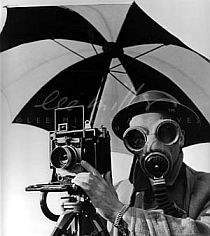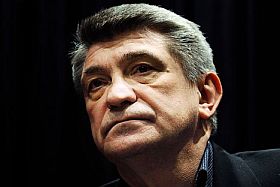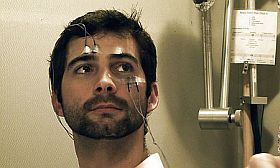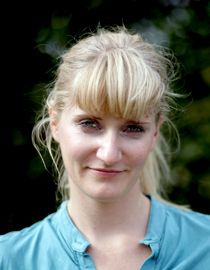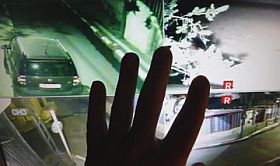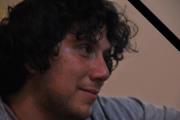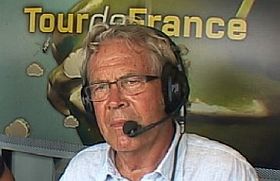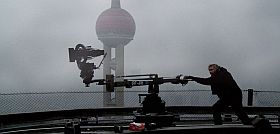Du bliver grebet om hjertet fra første øjeblik. En lille dreng er rædselslagen ved tanken om at skulle ind I en elevator. Det er den tanke og følelse, der skal ændres hos Will, der lider af ADHD og ofte hamrer håndfladen ind I sin pande. Det kan lade sig gøre netop ved tankens kraft og professionelle menneskers hjælp. Det samme gør sig gældende med to krigsveteraner, Rich og Steve, som bærer på frygtelige krigsminder. De lider af PTSD (Post Traumatic Stress Disorder) og de kan også hjælpes via meditation og åndedrætsøvelser, siger den fjerde hovedkarakter I filmen, hjerneforskeren Richard Davidson, hovedpersonen kan man sige for det er hans forskningsresultater og aktiviteter, som filmen skildrer – “we can change our brain for the better”.
I filmen man ser hvordan. Det er en film, hvor karaktererne udvikler sig og hvor processen med at gøre livet nemmere for Will, Rich og Steve følges. Det sker I børnehavelokalet og I Davidsons forskningscenter, hvor de to soldater sammen med andre gennemgår et helbredelsesforløb. Der gives parallelt hermed konkrete oplysninger om, hvordan hjernen fungerer og kan forandres “for the better”, og der oplyses om de familiemæssige sammenhænge for de tre. Deres historier er dramatiske, de har brug for den hjælp, som kan gives ud over den traditionelle medicin.
Se, det her kunne være en indholdsbeskrivelse til en klassisk videnskabs-dokumentar fra BBC. Det er det ikke. Phie Ambo har lavet en stor og smuk Film til det store lærred, visuelt brilliant, fremragende klippet af Marion Tuor I et flow, der formår at bringe historien fra den lille dreng til de to voksne og tilbage igen uden at det virker postuleret.
Det er ikke bemærkelsesværdigt, at dokumentarfilm I dag er karakter-baseret og appellerer til følelserne, som Phie Ambos film I høj grad gør, du
ler og græder som det hører sig til I en biografs mørke, men det er usædvanligt, at det følelsesmæssige kombineres med ambitionen om at gøre publikum klogere. I dette tilfælde på hjernen, hvis funktion stadig, siger Richard Davidson, er “the most complicated in the universe”. I filmen er det naturligvis Davidson, I billedet, som giver os viden, men det er også Ambo, der betjener sig af grafik og animation til at redegøre for, hvad der sker oppe I hovedet på os. Det sker f.eks. med kridt på tavle, jo det skjules ikke at vi også er I biografen for lære noget!
Herligt! Og dermed placerer Phie Ambo sig I en fornem dansk dokumentar-tradition ved at forklare vanskelige sammenhænge filmisk. Børge Høst fik I 1963 en Bodil for sin atomfysik-film “En ny virkelighed” og I nyere tid har Dola Bonfils set på den aktuelle hjerneforskning I “Tankens anatomi” (1997) og på et forskerhold på Novo Nordisk I “Drømme med deadlines” (2003).
For alle tre gælder det, at der er udført et kolossalt grundigt researcharbejde, og I Phie Ambos tilfælde har det så tilsyneladende været uomgængeligt vigtigt, at filmen fik en appellerende visuel form og en dramatisk struktur, som passer til en film til biografen. Hvor man også et godt stykke henne I filmen accepterer en effektfyldt montage, et billed- og lydbombardement, som sigter på at fortolke, hvad der sker I hovedet på veteranerne, når de gennemlever deres krigsmareridt. Det er film, det er flot at se og høre på, men jeg spekulerer på, hvad professor Davidson siger til den udlægning? Men det er lykkedes at få de mange stilistiske elementer til at spille sammen (allright, der er måske undertiden lidt for megen tjubang tryk på musik og lydeffekter), men formen bærer igennem og det ender med, at Will kører I elevator og med at Rich og Steve får det bedre. Hvilket er, hvad vi som publikum forventer med den valgte fortælleform. Imponerende sikker og overlegen er denne film, nummer to I en trilogi, hvor robotfilmen “Mechanical Love” var den første.
Filmen får landsdækkende premiere under DOXBIO d. 6. juni I 50 biografer. Herefter fortsætter den I minimum en uge I bl.a. i Grand Teatret, Øst for paradis, Café Biografen, Biffen i Aalborg, Ishøj Bio og Ikast Bio.
Den 6. juni vil der være en live-transmitteret diskussion, hvor instruktør Phie Ambo, professor Richard Davidson og en veteran vil diskutere filmens temaer og svare på spørgsmål fra publikum i hele landet.
www.doxbio.dk



